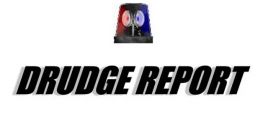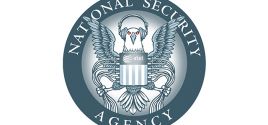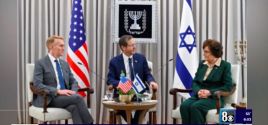The System Protects the SystemThe problem is not just benighted cops, but overcriminalizationby MICHAEL MUNGER The Freeman Dec. 11, 2014 |
Popular 
John Hagee Cheers Israel-Iran Battle as 'Gog and Magog War,' Will Lobby Congress Not to Deescalate

Right-Wing Media See Traffic Plummet in Wake of Algorithm Changes by Facebook, Google

Patriot ACT on Steroids: FISA Bill Forces 'An Enormous Range' of Businesses to Act as NSA Spies

Israel to Extend Water Agreement With Jordan 'For Helping Shoot Down Iranian Drones'

Congress Introduces ADL-Backed 'Countering Antisemitism Act' to Police Online Speech
 An interesting split has been developing in the reactions to the Ferguson and the Staten Island grand jury decisions. When you look closely, this is exactly the division that has for so long defined the American left and right and has kept libertarians on the sidelines. The left is outraged that the state is not doing exactly what the left expects from an idealized, unicorn state. When they said they wanted a system where everything was controlled by the state, for the common good, they genuinely believed that all that is necessary for good results is good intentions. Any failure must be a problem with implementation. But the real state is made up of human beings. People are deeply flawed. The left wants to rely on abstract systems, then be perpetually astonished when things go really wrong. It's not bad people that are the problem. “The thing, the thing itself” is the abuse, folks. The right? Well, the right is just denying that there is a problem. The system is working. The grand jury has spoken. The only problem is the protesters, who are law-breakers. The problem with that view is that grand juries almost always indict — unless the case is being brought against a police officer. Then, they almost never indict. That’s not really a “system” at all. That’s a problem. Judge Scalia got this right, in a different context. The libertarian middle (look, when the political system is a muddle, we’re the middle!) accepts parts of both arguments. The system is, in fact, working exactly as designed, so the right is correct in that sense. But this is a really bad outcome, and it hurts poor people the most — so the left is correct, too. You can’t have all those laws, a strong presumption in favor of the state’s truthfulness, and expect to protect the poor. As always, Bastiat said it best, and most succinctly, in The Law: When under the pretext of fraternity, the legal code imposes mutual sacrifices on the citizens, human nature is not thereby abrogated. Everyone will then direct his efforts toward contributing little to, and taking much from, the common fund of sacrifices. Now, is it the most unfortunate who gains from this struggle? Certainly not, but rather the most influential and calculating.The system is not designed to help the poor. Of course police officers are going to use excessive force. Of course police officers are going to have and act on racial and class-based preferences. And then the system — in the courts, the prosecutor's office, and the grand jury — is going to protect itself. That's the system, unless you believe in unicorns. The system is designed to protect the system. And it does that very well, so it is well designed. If the left were really serious about helping the poor, they would recognize that the only answer is much less of the system. We have criminalized so many behaviors (in the Staten Island case, selling packs of cigarettes!) that we have given the police enormous pressure to perform — and gigantic latitude to act on prejudice, bigotry, and simple anger. The police, in their defense, have an impossible job. They have come to see almost everyone around them, every day, as a lawbreaker and a danger to society. Harvey Silverglate has famously estimated that most of us commit at least three felonies per day. The only thing that prevents us from being jailed is the discretion and public spiritedness of the prosecutor. Of course, I myself don’t really need to worry. I have creamy white skin and quite a bit of money in my bank account. White people are largely unaffected. The almost-but-not-funny hashtag #crimingwhilewhite shows the truth: rich white people can break the law, and they won't get charged nearly as often. Still, even I don’t want to have to rely on the discretion and public spiritedness of the prosecutor. I’d rather rely on the fact — and it is a fact — that I haven’t actually done anything wrong, and therefore the laws that could be used to charge me with felonies shouldn’t exist in the first place. More and more, our government’s motto when it comes to citizens is “trust but terrify.” As long as overreaching laws effectively criminalize being black or poor, it's not surprising that the police will continue to treat black people and poor people as criminals. This kind of race-based law enforcement is given the stink eye by our friends on the left, but they can't seem to draw the obvious inference: the answer is not better police or more enlightened officials. The answer is fewer laws. That’s the long division in our society, the most important difference that arises from class and social status. Decriminalize normal nonviolent daily activity, and the police will have fewer excuses to harass people they don't like — people who often can't fight back. _ Michael Munger is the director of the philosophy, politics, and economics program at Duke University. He is a past president of the Public Choice Society. |



